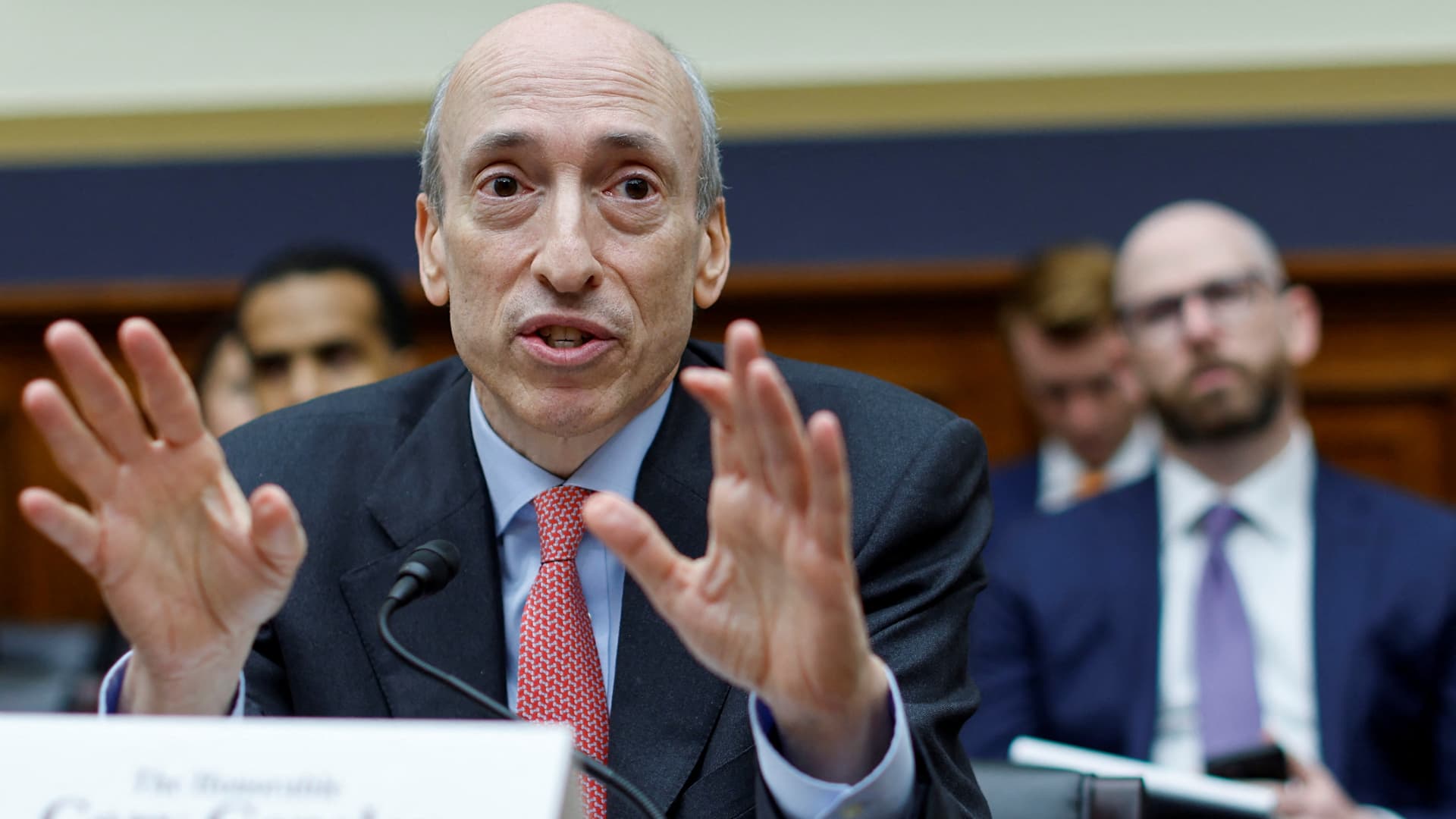The ETF industry is gearing up for some potentially seismic changes in 2025 and beyond. Tuesday’s election could go a long way to determining how and when those changes take place. A victory by Republican Donald Trump seems likely to usher in a lighter regulatory touch than the last four years, while embattled Securities and Exchange Commission Chair Gary Gensler could be replaced even if Vice President Kamala Harris extends Democratic control. ETF companies are getting ready for change whoever comes into office, both behind the scenes and publicly, with some novel fund applications already filed and under review by SEC staff. Policy changes from the SEC are hard to predict, but the ETF industry appears to sense an opening to push new types of products. “SEC stuff is so difficult to get a hold on, because none of us are in the room. … Whether it’s talking about leverage, talking about share classes, crypto regulations, all that has massive implications for the industry,” Strategas ETF strategist Todd Sohn said. “But we basically won’t know” until the industry or the SEC releases a statement. Private credit funds One big area of focus for the ETF industry is how to tap into the private credit boom that has become a key part of the U.S. financial system. The issue is that private loans are often illiquid, making them difficult to hold inside a fund that offers daily redemptions. Fund issuers will need the SEC to bless new types of constructions in order to get a private credit fund approved. “For the most part, private credit is an investment that is limited to sophisticated investors and not retail investors,” said Brian Murphy, a partner at law firm Stradley Ronon. “You’ve seen the private equity firms be really good over the years [at] learning how to do the deals and distribute to high net worth individuals, but they haven’t been able to get that private credit into a retail type wrapper, like an ETF. I think that’s where all eyes are now.” Some heavy hitters on Wall Street are already floating their ideas, including a fund from State Street in conjunction with private credit giant Apollo. The application for that product was filed in September. Share Class Relief Another key area to watch is whether the SEC allows companies to have exemptive relief to offer ETF share classes of mutual funds. Vanguard currently has this, under a very old ruling, but the rest of the industry would like to try it for themselves. Dozens of firms have filed for this, including BlackRock in late October. If approved, this could make some of the best performing mutual funds more easily accessible to investors, while also helping to stem outflows from asset managers by clients who prefer ETFs. In theory, popular ETF-only strategies could also be more easily added to certain retirement plans, like 401(K)s. “The ability to offer both mutual fund and ETF share classes in certain funds could enable more investor choice and provide lower transaction costs, tax efficiencies and benefits of scale to all shareholders,” Dimensional co-CEO Gerard O’Reilly said in a statement. What’s next for crypto Cryptocurrency is another area where the asset management industry is looking to launch more funds. Bitcoin ETFs have been a massive success in 2024, and ether ETFs have also established a significant foothold. Bitcoin “doesn’t need the election to thrive” and ethereum is already far along, said Bitwise Asset Management CIO Matt Hougan, but some of the smaller coins could benefit from a Trump win relative to Harris. A new SEC chair could face several decisions about crypto right off the bat. There are multiple applications for both XRP and solana spot ETFs already in the pipeline. However, some of the legal reasonings that led the SEC to approve bitcoin and ether funds don’t necessarily apply to other cryptocurrencies. Sohn said that some of the more crypto-specific asset managers could be trying to “get ahead” of any potential changes from regulators to ensure that they can carve out a space in the market before larger players move in. “It’s kind of like the same way with leveraged or single stock funds: we can’t compete with BlackRock and Vanguard in the core, so what if we come out with these more exotic funds — which would be solana and ripple — for some of the diehards out there,” Sohn said of the niche firms. Asset managers are also exploring adding derivatives-based products and funds that hold multiple coins, potentially including active management. Index and diversified strategies are “like a wide open space that is going to become one of the ways people invest, and Bitwise intends to be a leader there,” said Hougan, whose firm has filed for an XRP ETF. “But we also intend to be a leader in exposure products and then more active strategies.” Hougan added that Bitwise only files applications for products that it thinks can make it to market, but that there are no “guarantees” the XRP ETF will be approved.





